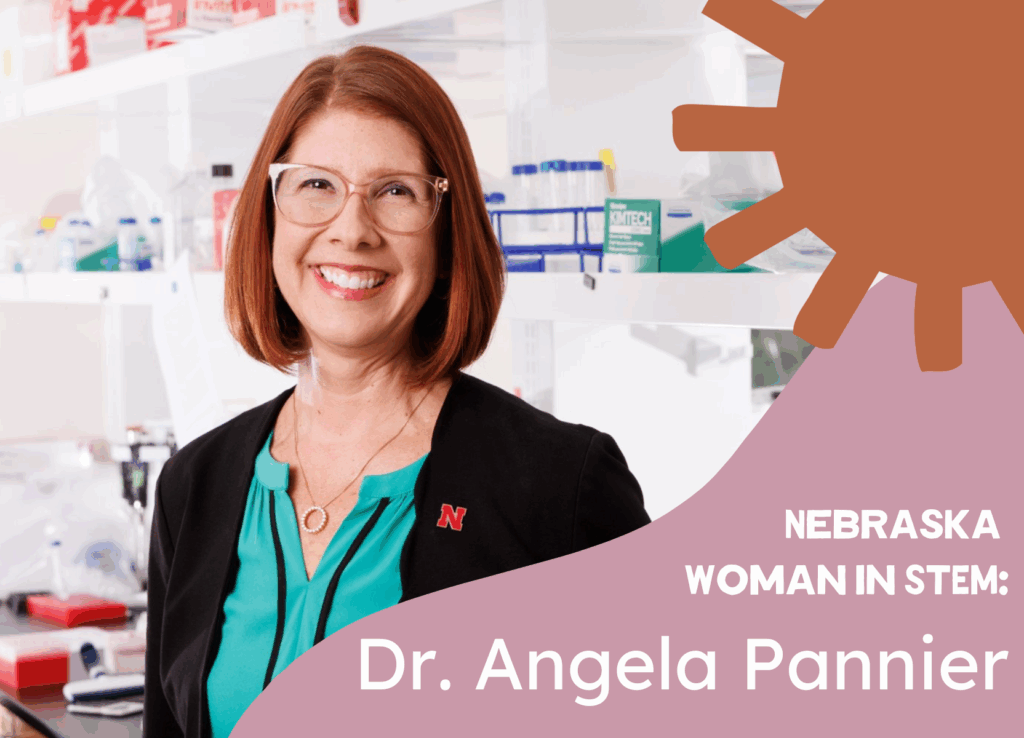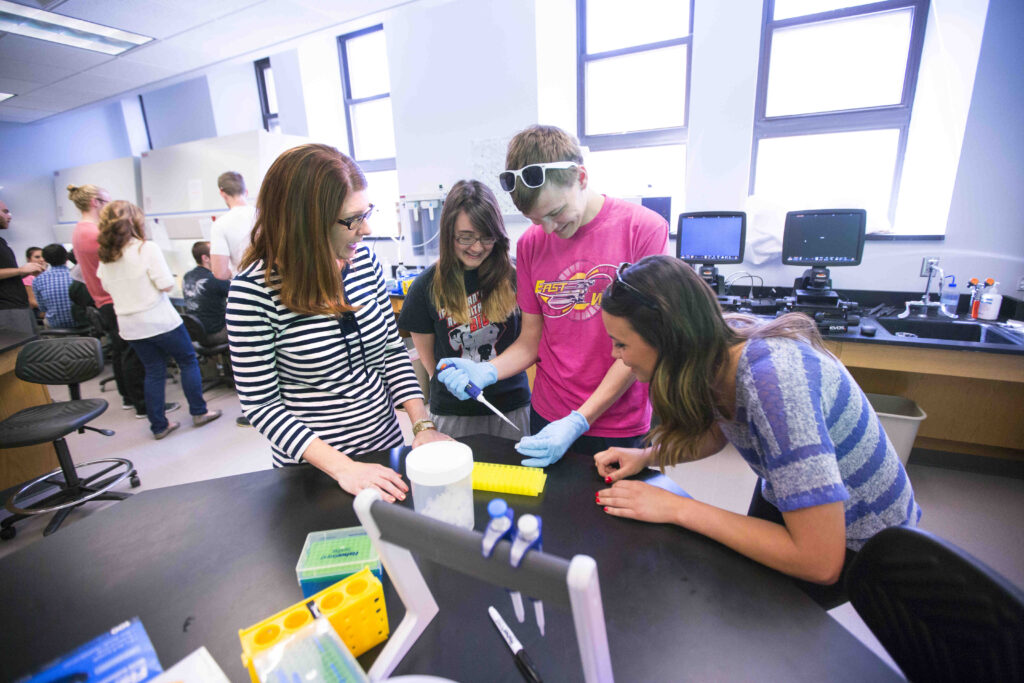Nebraska Women in STEM talked to UNL’s Dr. Angela Pannier about expressing individuality while pursuing excellence and navigating challenges.

“I lived for a long time thinking that artists are born artists and musicians are born musicians, but people in math and science– and especially in engineering– they’re also born that, too,” reflects Dr. Angela Pannier, the Swarts Family Chair of Biological Systems Engineering at the University of Nebraska-Lincoln (UNL).
As a Fremont native, Dr. Pannier remembers that her childhood was marked by a desire to take things apart and see how they worked. Growing up, she excelled in math and science in school and would play pretend scientists with her younger sister. The adults in her life– most notably her female high school physics teacher– noticed her aptitude for engineering and supported her by encouraging her to attend an engineering camp when she was in high school.
She credits her career as an engineer to the external support she received from parents and teachers, and to her innate interest and intelligence. When talking about why she pursued a STEM career, she says, “Honestly, I like to do hard things. People were telling me that engineering is really challenging and not a lot of women go into it. I wanted to prove to myself that I could do it.”
Not only did she want to defy the expectation that women could not excel in STEM careers, but also the notion that to be an engineer meant sacrificing your femininity. “They had this joke that went, ‘you know I’m a woman engineer because I have boots in the back of my car,’ implying that you’d use those to go out to a site visit. And I wanted to say, ‘you know I’m a women engineer because I’m kicking everyone’s butt at math, but I have high heels in the back seat.’”
As a first-generation student, Pannier was one of the first UNL students to earn a Goldwater Scholarship, a national scholarship for promising scientific talent. During her time as a UNL student, Pannier had the chance to do undergraduate research in a biomedical lab, an experience that transformed her career path and showed her she wanted to pursue a career in the academia. Then, in UNL’s graduate program, she received a Graduate Research Fellowship from the National Science Foundation. These accomplishments helped her on her trajectory towards receiving a PhD from Northwestern University and eventually being offered a faculty position back at UNL.
Her journey from student to faculty was as unexpected as it was exciting. In her fourth year as a doctoral student, Pannier was interested in being closer to home to start a family and applied for a Biochemistry position at UNL. Although she did not get this job, it opened doors for her current position. When Pannier was in her fifth year of her PhD program and expecting their family’s first child, she got a call: UNL offered her a position as a Biomedical Engineering professor.
She recalls being honored to return to UNL as faculty and the whirlwind of her unconventional path.
“I had two babies in my pre-tenure period, which was kind of crazy. And I did not do post-doc, which is also kind of crazy. But I did it! I was promoted to Associate Professor in 2013, and I was promoted to Full Professor in 2018. At the time, I was the first female faculty member in the department ever to achieve tenure, promotion, and promotion to full.”
Pannier has felt very supported for much of her time at UNL, yet there remain challenges for her and fellow female faculty to navigate in the strongly male-centric field of engineering. In particular, she finds that the standard of achievement is different for men and women and that others’ respect for her is lessened because of it: “For instance, in a room with male colleagues, I might not be referred to as doctor. I get called Angie, and everyone else gets called doctor. And while this might not seem like a big deal, it immediately sends messages to everyone in the room that I am somehow not at the same level”
While she was fortunate enough to get maternity leave for the birth of her second child, Pannier admits she has had to be bold about protecting her time and creating strong work-life boundaries. She also keeps her identity central to her job as a researcher and teacher: “The first thing I say when I teach a class is, ‘I’m a mom’. I always say that because that’s who I am. I’m going to talk about my kids, and I love shopping and clothes, but I’m also a damn good engineer.”
Remembering her role as an educator helps her to keep challenges in perspective. “I’m in this job to learn and to help other people learn. It’s a privilege, we just need to figure out how to do that in different ways– even with the current climate of uncertainty. This all will pass. We’re still going to need innovation and new ideas. And we’re going to need smart students trained to take over.”
Pannier’s advice for students and other women in STEM: don’t be afraid to be smart, expect changes to your plans, and never stop being true to yourself.
Her passion for guiding future women engineers is inspired by other women in STEM– those like her physics teacher from Fremont High– and her fierce desire to empower young women. “I want to make sure that they see that they can still be who they are and be an engineer.
